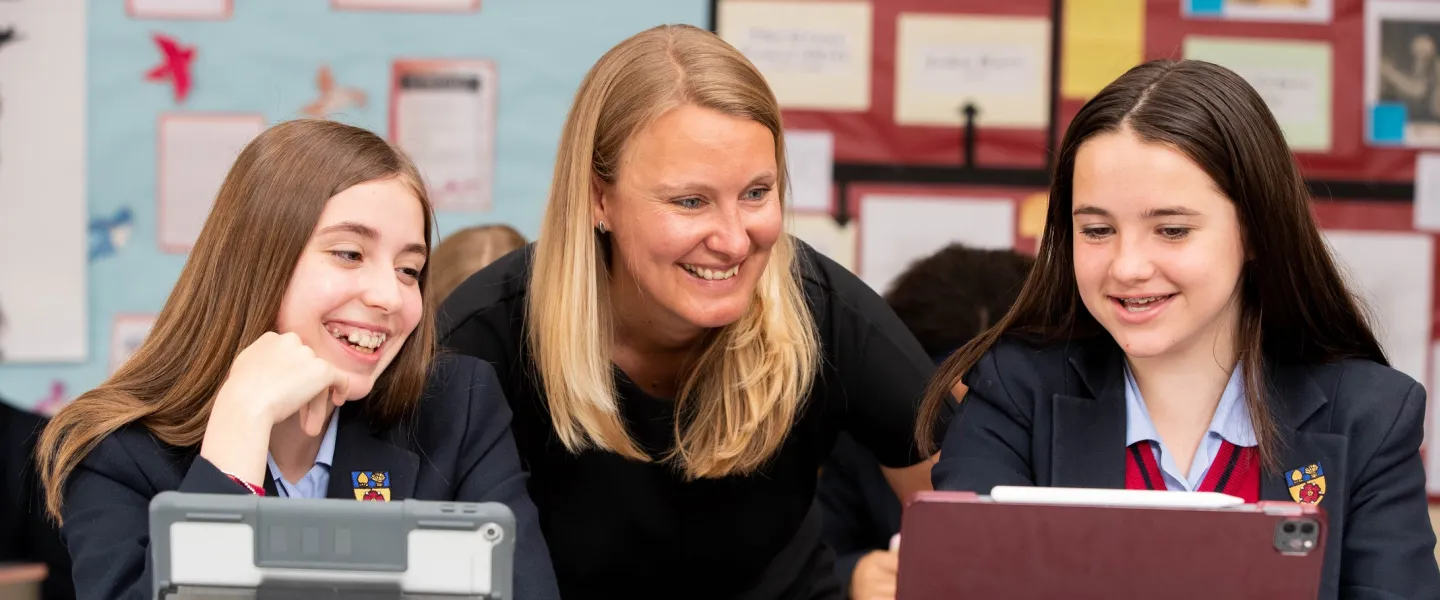As Head of Computer Science here at The Queen’s School, an important part of my role is to keep abreast of and talk to students about the changes and new developments in technology impacting our lives and the world around us.
The big story in the technology press in recent months has been around developments in artificial intelligence (AI) and in particular Open AI’s ChatGPT.
ChatGPT is a chatbot that was launched in November 2022. It is currently free to use and is taking the world by storm. ChatGPT can generate realistic, human-like text and text responses on any subject when prompted in the blink of the eye. It will literally type a response on the screen as you watch and those responses sound like they have come from a real person - amazing. There has been some talk about ChatGPT and chatbots like it posing a threat to traditional education with fear that university and school students could use the AI to cheat on written assignments without being detected. But there is much more we need to consider if we are to truly imagine and harness the potential uses of AI in education. Al in education is coming, and the opportunities are just as important as the threats.
One of the biggest potential advantages of AI in education is the ability to personalise learning. With the use of AI, teachers and educators could create customised lesson plans and educational materials that cater to the unique needs of each student. This can help to ensure that all students are learning at their own pace, and that no one is left behind.
Another benefit of AI in education is the ability to provide students with real-time feedback and guidance. With AI, students could receive immediate feedback on their work and be given suggestions for improvement. This can help to boost student engagement and motivation, and can also help to improve overall academic performance.
However, it’s also important to note that the use of AI in education should be done with care and consideration. It should be used in a way that enhances human capabilities, not replaces them. Ethical considerations are also important to keep in mind, as well as ensuring that there is a balanced use of technology and human interaction.
While AI can provide personalised learning and real-time feedback, it can also lead to a lack of human interaction and personal connection between students and teachers. This can be detrimental to students' social and emotional development. We learned all too well during covid times that a computer and a screen, while hugely beneficial, is not a real substitute for a teacher in the classroom and those personal interactions.
Additionally, AI systems have limited learning capacity compared to human teachers and cannot yet mimic the cognitive abilities of humans, such as creativity, empathy, and critical thinking. This means that AI can assist in certain areas of education, but it is not a replacement for human teachers.
As a leading independent girl’s school in the UK, it is important we stay informed about the latest developments in AI and consider how it could be used to enhance the education of our students. Overall, the future of AI in education is very promising and has the potential to greatly improve the quality and effectiveness of education for all students. However, it is important to consider the limitations of its use. Ethical considerations and transparency should also be taken into account in order to ensure that any use of AI in education is fair and equitable for all students and enhances rather than detracts from the whole educational experience.

Mrs McKeirnan
Head of Computing
